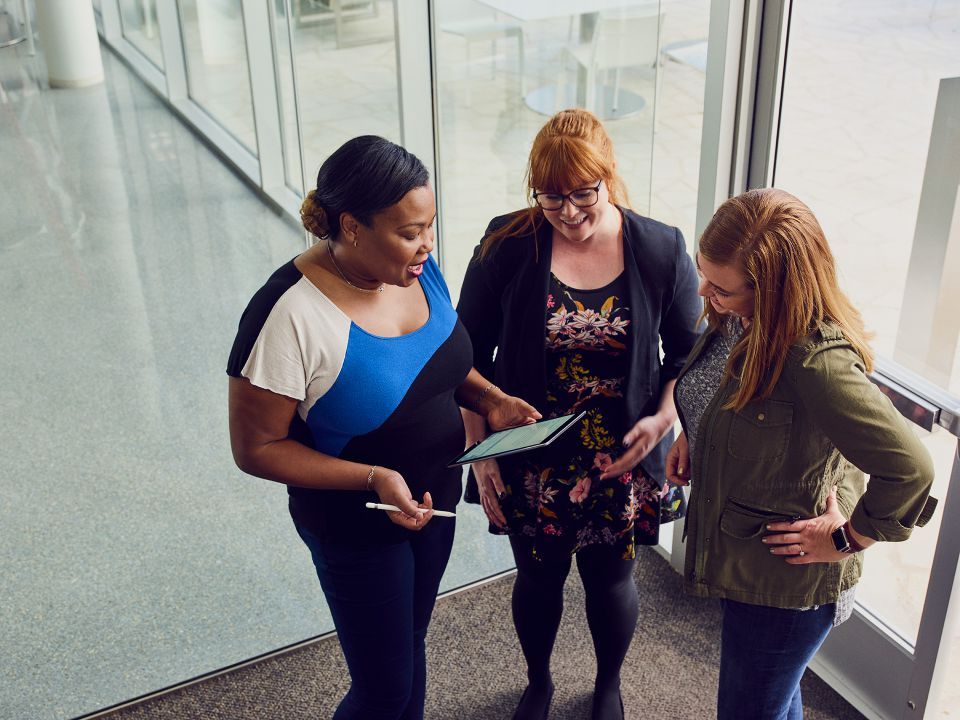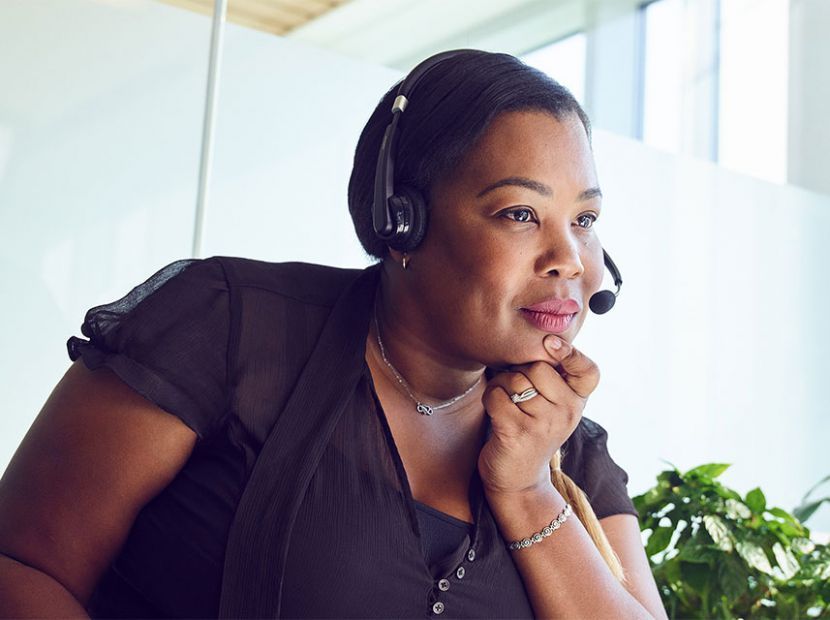Creating impact at a company the size of Apple can feel daunting, so when we heard about Cristina's role as a senior developer partner relations advisor, we were flooded with questions. She was gracious enough to lend us her time and provide us with the inside scoop on what a typical workday looks like, her favorite parts about working for Apple, and her favorite books to recommend. (She also shares some awesome karaoke apps that we are downloading right this second.)
A day in the life
10:00 a.m.: I arrive and catch up on email and our communication tools. I also review the Apple Developer System Status page. This tool is extremely helpful to keep us and our developers updated about how issues are being addressed, or if anything critical related to development tools and App Store Connect is being worked on. Then I follow up on my responses to tickets from our engineering team that are pending completion, or communication to a developer.
12:00 p.m.: Attend the program leads meeting with our Inclusion and Diversity leadership team. As I am a program and webmaster lead, we discuss events and activities that we can program and the agenda for each month that we offer to members of the specific Diversity Network Associations group.
3:00 p.m.: Attend our content forum meeting, which is a Q&A session with the content team to address and gather feedback from Advisors related to content that affects the AppleCare Partner Relations group.
Throughout the day, I work on cases that are assigned to me and arrive in my inbox. I also take consults and escalation from our Advisors. When I get a consult, I analyze the issue and provide guidance and resources that help the Advisor assist the developer. When I get a case escalated to me, I work directly with the developer to complete an account update, collect data to report trending issues to engineers, or provide the support needed to resolve a case, which can include providing clarification about the Apple Developer Program membership requirements and policies. A lot of collaboration happens in internal group chats that involve answering and asking questions and sharing resources.
At times I also lead team meetings, do keynote presentations, act as the team manager’s point of contact, and mentor other Advisors. The different tasks I have make my workday challenging and interesting.

On working at Apple
I work in a department that is directly associated with the App Store. The fact that I see how huge and amazing the impact of apps is in people’s daily lives is enough reason to feel extremely good about going to work every day. Additionally, I educate Advisors and developers about the Apple Developer Program. I get to work with many amazing organizations that make a huge difference in our lives every single day, and I help fix their issues to ensure that those developers are keeping their apps available in the App Store.
What makes Apple's work culture unique is their dedication to diversity and inclusion. We are all different, yet we have so much in common. Apple respects our differences and gives us the room to share them in a positive way. I am part of the leadership group in the Inclusion and Diversity program and I have visibility into how active that group is and how much Apple really is involved in making everyone feel like they belong.
Working at Apple has taught me persistence. You can be successful if you work hard and are invested in your goal. Don't give up if you don't succeed at first. It doesn't mean that you won't achieve it—keep working hard at it.
Do you have a go-to workday lunch?
Yes, mushroom soup from the Caffè Macs Deli.
What's your favorite book to recommend?
As far as fiction, If Tomorrow Comes, by Sidney Sheldon is the first book of his I ever read and is my favorite. I was in my early teens and my father was a big Sidney Sheldon reader. He had all of his books and passed them on to me. The main character in this book, Tracy, was an "ordinary" person who was framed by the mafia, and from that, she learned to fight her enemies with intelligence and strategy and became the smartest woman con-artist ever. I wish they would make a movie out of it.
For personal and professional development, Emotional Intelligence: The 21-Day Mental Makeover, by James W. Williams. I found that this book gave me a different perspective on having relationships with all types of individuals and being able to understand how emotions affect us individually.
What is the best piece of advice a parent has ever given you?
My mother has always advised me to ensure that I invest my money wisely, even if I make small deposits in a savings account every month. She was adamant about not having debt or borrowing money from others and thought that investing money in property was a wise thing to do. And that is what I did.
For years I saved money and today I own two homes. Being honest, respecting the elderly, and being financially responsible were also pieces of advice that I received from my parents and that I took to heart. Today I am a successful individual because of what they taught me, not only with their words, but also by being the example that I needed.
Do you have a favorite after-hours hobby?
Yes. Singing karaoke in the Smule app or on Twitch Sings. I love how these apps allow you to sing with others and be social without having to go to a bar.
What are your best and worst work habits?
My best habits would have to be: punctuality, efficiency, my meticulous nature, avoiding procrastination, politeness, and being proactive about sharing my knowledge with others.
For my worst habits, I would say: Because I am very detail-oriented, sometimes it takes me a bit more time to complete tasks that are not time-bound. I like to work as part of a team; however, I am not as social as most employees are during work hours as I tend to prioritize my tasks.

What is the smartest work decision you've ever made?
I steered away from debt and with that, I was able to lead the life that I enjoy living.
What's your best tip for leading a meeting?
I have four! 1. Set the expectation for the time available for each topic and the objective of the meeting. 2. Avoid allowing everyone the time to talk freely. Asking for input or writing down questions is helpful to maintain the flow and to avoid losing the leadership of your meeting. 3. Be very familiar with the topic and ready to answer questions. Researching the subject discussed in the meeting and knowing enough to be able to speak with confidence is ideal. 4. Make sure that all the tools and software that will be used in the meeting are working properly before the meeting starts.
What's some advice you would give your 13-year-old self?
Don't be afraid to make mistakes, and don't be embarrassed to share them. You will learn so much from them and with that, be a huge influence to others even by simply being observed from afar. Your mistakes can be of great help to others who will learn from you.
THIS ARTICLE ORIGINALLY APPEARED ON CAREER CONTESSA. IT WAS REPUBLISHED WITH PERMISSION.

